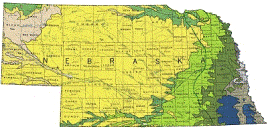United States Geological Survey

United States Geological Survey: Staff Publications
Document Type
Article
Date of this Version
2014
Citation
2014 Author(s)
DOI: 10.1214/14-AOAS783
Abstract
As noninvasive sampling techniques for animal populations have become more popular, there has been increasing interest in the development of capture-recapture models that can accommodate both imperfect detection and misidentification of individuals (e.g., due to genotyping error). However, current methods do not allow for individual variation in parameters, such as detection or survival probability. Here we develop misidentification models for capture-recapture data that can simultaneously account for temporal variation, behavioral effects and individual heterogeneity in parameters. To facilitate Bayesian inference using our approach, we extend standard probit regression techniques to latent multinomial models where the dimension and zeros of the response cannot be observed. We also present a novel Metropolis-Hastings within Gibbs algorithm for fitting these models using Markov chain Monte Carlo. Using closed population abundance models for illustration, we re-visit a DNA capture-recapture population study of black bears in Michigan, USA and find evidence of misidentification due to geno typing error, as well as temporal, behavioral and individual variation in detection probability. We also estimate a salamander population of known size from laboratory experiments evaluating the effectiveness of a marking technique commonly used for amphibians and fish. Our model was able to reliably estimate the size of this population and provided evidence of individual heterogeneity in misidentification probability that is attributable to variable mark quality. Our approach is more computationally demanding than previously proposed methods, but it provides the flexibility necessary for a much broader suite of models to be explored while properly accounting for uncertainty introduced by misidentification and imperfect detection. In the absence of misidentification, our probit formulation also provides a convenient and efficient Gibbs sampler for Bayesian analysis of traditional closed population capture-recapture data
Included in
Geology Commons, Oceanography and Atmospheric Sciences and Meteorology Commons, Other Earth Sciences Commons, Other Environmental Sciences Commons


Comments
The Annals of Applied Statistics 2014, Vol. 8, No. 4, 2461-248